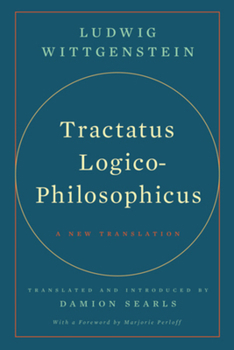Tractatus Logico-Philosophicus: A New Translation
Select Format
Select Condition 
Book Overview
Consisting of 525 hierarchically numbered statements, each one "self-evident," Tractatus Logico-Philosophicus is imbued, as translator Damion Searls writes, with the kind of cryptic grandeur and awe-inspiring opacity we might expect--might want--from such an iconic philosopher. Yet earlier translations, in their efforts to excessively copy German phrasing and syntax, range from stilted, even redolently Victorian, to downright impenetrable.
With this new translation and insightful introduction on the language of the book, Searls finally does justice to Wittgenstein's masterpiece, capturing the fluid and forceful prose of the original without sacrificing any of its philosophical rigor. Indeed, in freeing the translation from the grip of the German language--revisiting, especially, the nouns and impersonal verbs that don't convey in English the precision and intensity of the German--Searls renders Wittgenstein's philosophy clearer and more accessible than ever before.
Featuring a preface by eminent Wittgenstein scholar Marjorie Perloff, this bilingual, facing-page edition promises to become the standard for generations to come.
Related Subjects
Metaphysics Logic & Language Philosophy Politics & Social Sciences Pragmatism Science & Math




